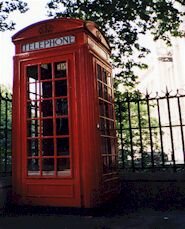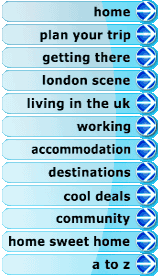Post and Communication
 |
The UK is well served by post offices, postal outlets in retail stores, and the well-known red postal boxes. Public payphones are also commonplace, with most operated by British Telecom (BT) - regrettably few these days are of the iconic traditional red design.
Post Offices are open from 9am to 5.30pm Monday to Friday, and most are also open Saturday from 9am to 12.30pm. Sub-outlets within other stores should keep similar hours.
Stamps can be bought at the offices, and also from vending machines and certified newsagents. A first class ('fastpost') stamp costs 26p, and this should get a standard letter anywhere in the UK by the next day. A second class stamp costs 20p, and will take on average two to four days to arrive at its UK destination. Letters to the southern hemisphere will cost either 44p (if under 10g), or 64p (for 20g). Aerogrammes costing 37p can be purchased also.
Payphones accept coins and/or phonecards, with a noticeable shift to the latter in recent years. Credit cards can be used in a reasonable proportion of payphones. Phonecards can be bought principally in £5 and £10 denominations from most post offices and many newsagents - look for the BT logo.
Many independent telco's offer international rate deals that the likes of BT can't (or won't) match - it can cost only 3-5p per minute to call Australia or South Africa, for example. For great deals on international calls home, see Home Sweet Home.
General Telephone Information
Just as with your home country, different regions have different prefixes. For example, London numbers begin with either 0207 or 0208, Cardiff numbers 029, and Manchester numbers 0161.
General telephone number prefixes can be expensive to the caller, so beware before you start dialing. While 0800 and 0808 calls are free to the caller, 0345 and 08457 are charged at local rates, and 0870 at even higher rates typically.
Useful Telephone Numbers - Click Here.
|





